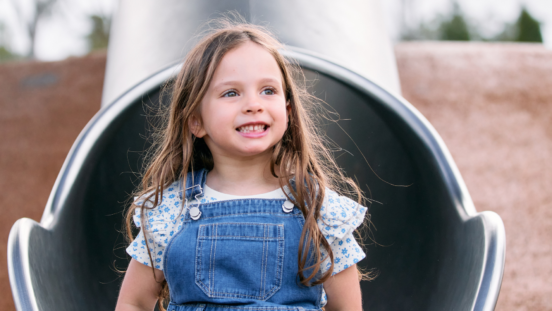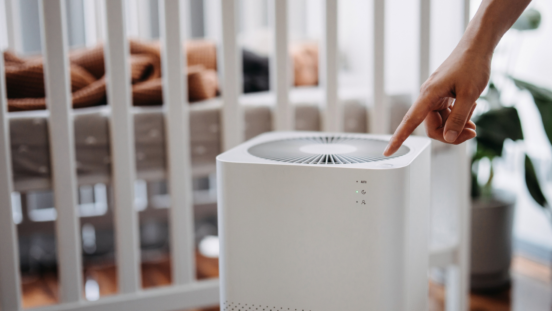How to play with your newborn
Expert advice on how to play and interact with your new baby.
Not sure how to play with your new baby? Don’t underestimate his ability to respond to you. Child health nurse Sharon Donaldson explains, play has always been part of learning and growing, as well as providing enjoyment and fun – but newborn babies have little time to play.
“It’s usually all about feeding, cuddling and sleeping,” she says. “From birth, smile at your baby often. Talk to him, look into his eyes and have lots of cuddles. Babies are very sensory, so provide things to see and hear, with changes of scenery, parents’ voices and music.”

Sound is very stimulating, so spend time singing to your newborn.
Follow these expert tips for playing with your new baby…
Keep it visual
Hang artwork on the nursery wall and walk around showing him each one. “Babies love stories, so point to the pictures and pretend you are telling a story,” says Sharon. “This is a great way for your bub to learn the different patterns and objects.” His developing vision means he can’t yet differentiate between subtle shades, so use pictures with high-contrast colours or black and white images.
Use sound
Sound is very stimulating, so spend time singing to your newborn. “Baby language is so important when speaking to your baby,” says Sharon. “Speak as though you are almost singing, like a singsong rhythm in a repetitious manner.” Many toys have squeaks or rattles, which he’ll love — but make sure the noises aren’t startling, and that he can see where they’re coming from.
Try soft toys
You may find you’re not short of a cuddly toy or two when the baby gifts start arriving, so put them to good use. “Babies love the feeling of soft textures against their skin and soft cuddly toys can often become objects of comfort,” says Sharon. “You could give the soft cuddly toy a name, and use it in pretend play. This will nurture your baby’s social skills as he grows.”
Take turns
From about two months, your baby can enjoy ‘conversations‘ with you. “Babies start to learn turn-taking – for example, you poke out your tongue then he does – which is the very early beginnings of conversation,” says Sharon. “Talk to your baby and encourage him to follow your head and your movements, and make funny faces with each other.”
From above
Hang a mobile over your baby’s cot or treat him to a baby gym with a toy bar – he’ll love having objects to stare at. “Around six to eight weeks of age, babies discover that when they move and jiggle around, the toys move,” she says. And, as your baby reaches 12 to 14 weeks, he’ll start batting out for toys. “Babies also start to learn cause and effect – for example if they hit a rattle it makes a noise, so then they do it again.”
Play basic games
When he’s three or four months, simple games are great for baby’s development. “Babies are often thrilled and enthusiastic when it comes to simple games like Peek-A-Boo and action rhymes such as Round and Round the Garden and Incy Wincy Spider,” says Sharon. “They usually squeal in anticipation as they begin to recognise the sequence of what you are doing.”
Give him time
It’s easy to get excited when you’re playing with your baby, but go at her pace. “It’s a good idea to allow your baby plenty of time to respond,” says Sharon. “Babies can often tire quickly and may seem bored. A sure sign is if they keep looking away, yawn or begin to cry.” So be ready to either move on or put your little one to bed. And after a while, try new songs and games – babies are ready to absorb and are quick learners.




